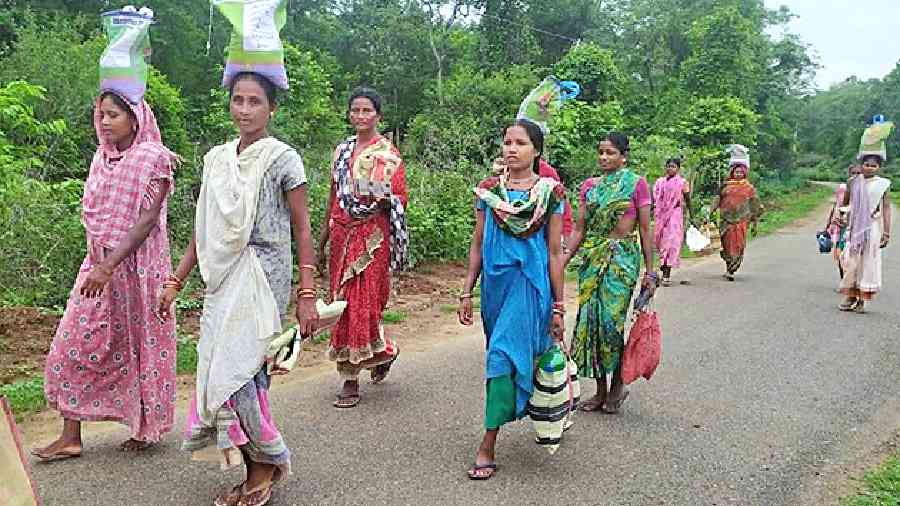The ghost of the Salwa Judum, a State-sponsored militia that operated in Chhattisgarh, continues to haunt the displaced Gotte Koya tribals. Before the apex court declared the militia unconstitutional, the Salwa Judum was illegally engaged in fighting the Maoists. Caught between the Salwa Judum and the Maoists, many communities were at the receiving end of the violence with the Gotte Koyas, known as the Muria in Chhattisgarh, arguably, being the worst victims. Around 55,000 displaced Gotte Koyas are now living in Andhra Pradesh, Telangana and Odisha, with the majority found in the Mulugu and the Bhadradri Kothagudem districts of Telangana.
Since their exodus from South Bastar, the ordeal of the Gotte Koyas has only worsened. The State machinery (Telangana’s forest department personnel) has aggravated their vulnerability by occasionally damaging their temporary huts and asking them to vacate the forest land. In the case of the nearly five million internally displaced persons in India, the controversial role played by the Indian State cannot be pushed under the carpet. The State has been an essential stakeholder in contributing to such displacements. It has either favoured one group over another, resulting in the latter being forcibly displaced from its native place; or the State has been an indifferent spectator to internal displacement. In the case of the Gotte Koyas, the State’s complicity in the form of its support for the Salwa Judum should not go uncriticised. There are similar examples — from the northeastern states and Odisha — of State indifference to the plight of the displaced. Without a legal and constitutional framework for safeguarding the interests of the IDPs, the Gotte Koyas are now a ‘nowhere people’.
The case of the displaced Gotte Koyas raises a pertinent question about the claim of ‘single citizenship’ by the State. As suggested by reports, the bulk of the difficulties faced by the Gotte Koyas in Telangana pertains to negotiations with officials on their scheduled tribe status. Their exclusion from social welfare schemes can be linked to the non-recognition of the ST status by the Telangana government. Ironically, the government’s positioning of the ‘one nation, one ration card’ scheme seems to have little validation as a number of judgments territorialise social status and identities of marginalized communities even though they are particularly vulnerable to conflict-induced displacement. Beginning with the position taken by the ministry of home affairs (1984), corroborated by the ministry of tribal affairs (1985), and reiterated by the ministry of social justice and empowerment, the scheduled caste and ST status of a person, in terms of enjoying the benefits and reservations, can be applied only in the state of his/ her origin and not in the state to which he/she has migrated. Such a position was even clarified by a Supreme Court judgment in 1990 (the Marri Chandra Sekhar Rao case).
The National Commission for Scheduled Tribes has repeatedly notified the Chhattisgarh government to carry out a detailed survey of the displaced people and to seek application from them for their in-situ rehabilitation under Section 3.1m of the Forest Rights Act, 2006 and to provide alternative land to the displaced. But there has been hardly any movement from the latter. Worse, the Telangana government, going by the rule book, has deprived the Gotte Koyas of basic human entitlements. The Centre has been equally indifferent. A presidential notification under Article 342 can offer the Gotte Koyas tribal status in Telangana. Such a move would also help them access the entitlements ensured under the FRA. However, this has not been the case. Deprived of political capital and suffering from systemic inequalities, the Gotte Koyas remain the nowhere people.
Anshuman Behera is Associate Professor, NIAS, Bengaluru










